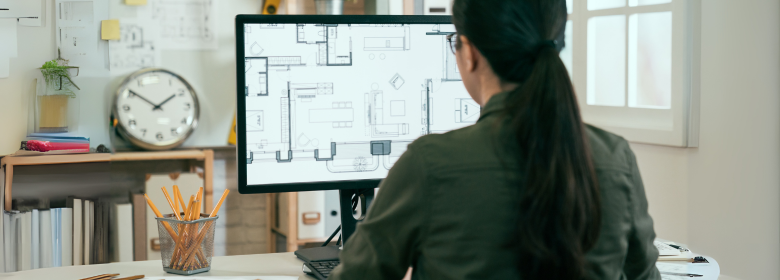Introduction
At Aspect IT, we regularly help clients dealing with slow or unresponsive computers. It is frustrating when your PC takes forever to load or keeps freezing, especially when you are trying to get work done. It affects your productivity and work quality. Fortunately, most of the causes behind a sluggish computer are easy to identify and even easier to fix once you know where to look.
In this guide, we will walk you through the most common reasons why your PC might be running slowly. We will also share practical tips to help you speed things up and keep your system running smoothly in the long term.
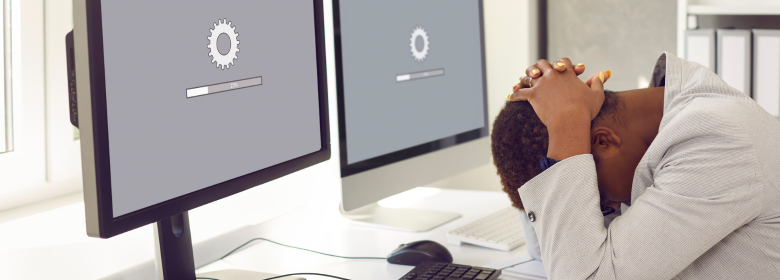
How Running Too Many Programmes Affects PC Performance
Problem:
Sometimes it’s easy to forget how many programmes are running at the same time. Some start automatically when your PC boots and quietly use up processing power and memory in the background, even if you don’t currently need them.
Solution:
You can quickly fix that by pressing Ctrl + Shift + Esc to open Task Manager or by right-clicking the taskbar and selecting Task Manager. Under the “Processes” tab, review the programmes that are using the most CPU and memory. Close the ones you do not need. Then switch to the “Startup” tab and disable unnecessary startup programmes to improve boot time and overall performance. Also, be mindful of open browser tabs and extensions, as these can use significant memory.
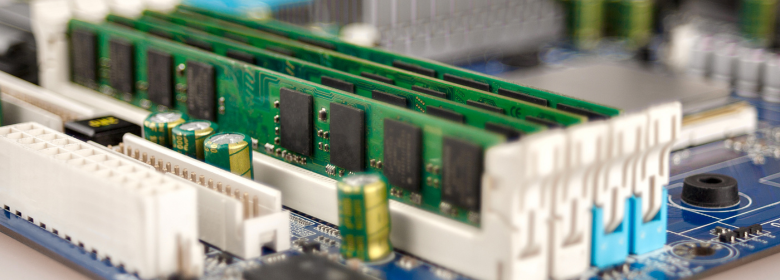
Not Enough RAM? Why More Memory Means a Faster PC
Problem:
RAM is your computer’s short-term memory. It stores the information your PC needs to access quickly while you’re using it. If your system doesn’t have enough RAM for the tasks you’re doing, it has to rely on your hard disk instead, which is much slower. This can make your computer lag, freeze, or respond slowly.
Solution:
Check your RAM usage by accessing the “Performance” tab in Task Manager. If it is frequently near full capacity, upgrading your RAM can significantly improve performance. A minimum of 8GB is recommended for general use, while 16GB or more is ideal for professional software. Before upgrading, check your motherboard’s compatibility and available slots.
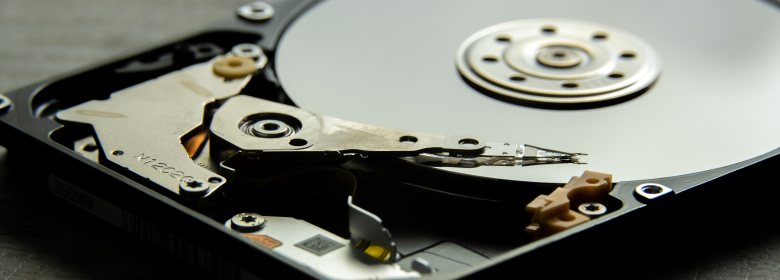
Is Your Hard Drive Full and Slowing Your PC?
-
Problem:
When your hard disk is nearly full, your operating system has less space to work with. Essential tasks like updates, temporary file storage, and virtual memory need free space to run properly. Without it, your system can slow down and become less responsive.
Solution:
Begin by checking your storage usage through “Storage Settings”. On Windows, click the Start button, then go to Settings > System > Storage. Here, you’ll see a breakdown of what’s taking up space on your hard drive.
Delete unnecessary files, uninstall programmes you no longer use, and empty your recycle bin. You can also move large files like photos and videos to cloud storage or an external drive. Tools like Disk Cleanup (built into Windows) or third-party apps such as CCleaner can help you remove temporary files and free up space automatically.
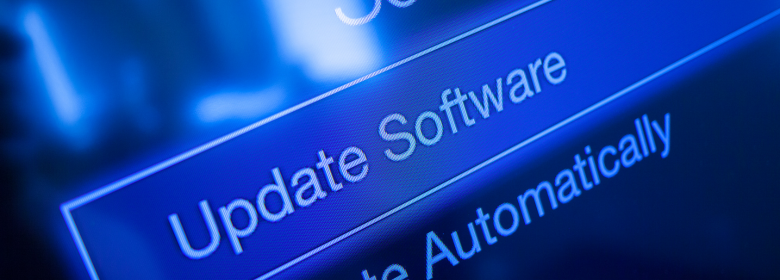
Why Regular Updates Are Essential for a Fast, Secure PC
Problem:
Running outdated versions of your operating system, drivers, or essential software can lead to compatibility issues and decreased performance. Missing security patches may also expose your system to vulnerabilities.
Solution:
Regularly update your operating system. Keep drivers current by visiting your hardware manufacturer’s website or using automatic driver update tools. Updating software like browsers and productivity tools ensures they run efficiently and securely.
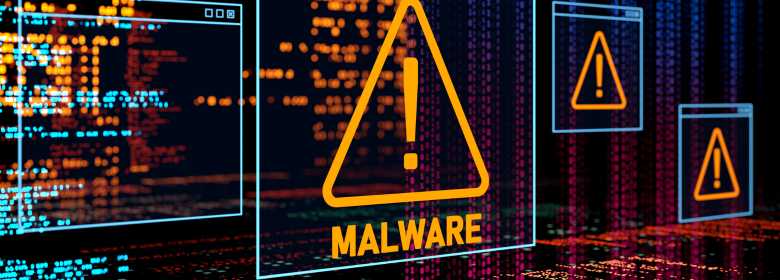
Is Malware Slowing Down Your Computer? Here’s How to Fix It
Problem:
Viruses and malware can significantly impact system performance. These malicious programmes often run hidden processes that consume memory, alter system settings, and create network traffic, all of which contribute to a slow computer.
Solution:
Run a full system scan using a reputable antivirus programme. Consider using a secondary malware scanner to ensure no threats remain. Enable real-time protection and schedule regular scans. Be cautious with email attachments, downloads, and suspicious websites to prevent future infections.
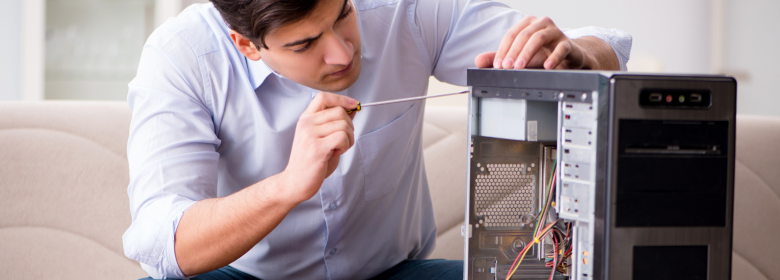
Check for Failing Hardware That May Be Slowing Your System
Problem:
Hardware components like the hard disk, CPU, or RAM can deteriorate over time. A failing hard disk may produce clicking noises, lead to frequent crashes, or cause slow file access. Faulty RAM and overheating CPUs can also cause instability.
Solution:
Use diagnostic tools such as Windows Memory Diagnostic or third-party utilities like CrystalDiskInfo to check hardware health. If problems are detected, consider replacing the affected components. Solid-state drives provide faster read and write speeds than traditional hard disks and can significantly improve overall performance.

Other Reasons Your PC Might Be Slow and How to Fix Them
Restart Regularly: Restarting your computer can clear temporary processes and resolve minor software issues. Many users leave their systems on for days or weeks, which can lead to memory leaks and performance degradation.
Defragmentation: If you are using a traditional hard disk, periodic defragmentation can help files load more efficiently. Windows includes a built-in tool for this. Solid-state drives do not require defragmentation.
Power Settings: Ensure your power plan is optimised for performance. On Windows, go to Control Panel, then Power Options, and select High Performance or Balanced instead of Power Saver.

Conclusion
A slow PC can result from a combination of software inefficiencies, hardware limitations, and improper configurations. The key to improving performance lies in correctly identifying the problem and applying the appropriate solution. Whether it is upgrading RAM, cleaning up disk space, or running a malware scan, these practical steps can revitalise your system and extend its lifespan.
If your PC is still running slowly after trying these steps, it might be time to speak to a professional.
At Aspect IT, we provide expert IT support for businesses in Oldham and surrounding areas.
Contact us today to book a free consultation or learn more about our IT support packages.
Give us a call on 0161 241 9050 or email info@aspectit.co.uk to get started.
FAQs
- How often should I restart my PC? Restarting once every few days is a good practice. It helps clear memory and temporary processes, especially if you use your PC heavily.
- Is upgrading to an SSD worth it? Yes. An SSD can significantly reduce boot times and improve overall system responsiveness compared to a traditional hard disk.
- Can too many browser extensions slow down my PC? Absolutely. Each extension consumes resources. Disable or remove extensions you no longer use to improve browser and system performance.
- Should I shut down my PC every night? Shutting down or restarting regularly is beneficial, but it is not necessary to do it every night unless you are experiencing issues. Sleep mode works well for short-term use.
